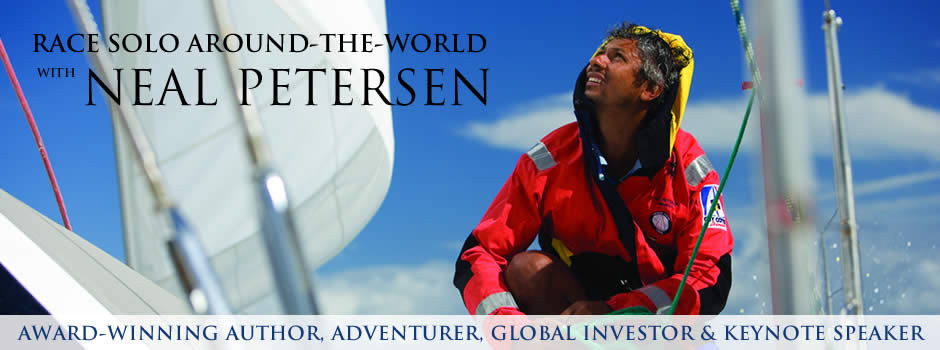Distance doesn’t matter for Dr. Daniel Carlin. If you are on the Internet, he can treat you.
Distance doesn’t matter for Dr. Daniel Carlin. If you are on the Internet, he can treat you.
By Andrew Adamson, January 5, 1999
In November of last year, one of Dr. Daniel Carlin’s patients came down with a minor abscess in his elbow. The physician knew the infection was not life threatening. A simple surgical procedure and a good dose of antibiotics were all he needed. Treating him would have been a cinch — if he weren’t 600 kilometres off the coast of South Africa.
The patient, 50-year-old Victor Yazykov, was competing in the ’round-the-world AroundAlone yacht race and was on his way from the east coast of the United States. His only connection to the outside world was a rudimentary, computerized email system installed on his 12-metre yacht.
“Some yellow spot in the middle of red, and it feels like dead… waiting for your help,” Yazakov’s first message to Carlin read. The very next day he wrote his skin had become “glossy white”.
Victor Yazykov’s training as a Russian army commando prepared him for the pain – and a potentially disastrous mistake.
Victor Yazykov’s training as a Russian army commando prepared him for the pain – and a potentially disastrous mistake.
After exchanging a few messages, Carlin knew this minor infection would turn very deadly if the Russian sailor didn’t treat his wounds properly.
“He was saying to me, ‘Look, we need to do surgery and I want to do it properly,'” Carlin told EXN from his office in Boston. “And it was clear from the medical report he had given me that it was necessary.”
Putting together a 14-point ‘recipe’, the founder of WorldClinic outlined exactly what the Russian would have to do to prepare the wound, operate on it and protect it from further infection. Despite the tremendous pain, Yazykov followed the instructions.
Unfortunately, the bleeding didn’t stop after the operation. Yazykov had been taking large doses of aspirin, and that was preventing the blood from clotting. Fearing he was loosing too much blood, the former commando followed his army training and tied a tight tourniquet around his arm, cutting off the blood flow to the incision and leaving his arm numb and lifeless. Unfortunately, it also began killing the tissue in the arm. He wrote back a message to race organizers with the update. When Carlin found out, hours later, he immediately ordered his patient to remove the tourniquet and stop taking aspirins.
Today, while the tourniquet may have caused permanent nerve damage, Yazykov’s arm is nearly back to normal. And Carlin is on to his next patient: South African competitor Neal Petersen has come down with a case of trench foot. That diagnosis was helped along with a digital photograph the sailor sent him via email.
Racers aren’t the only ones to benefit from Carlin’s online work. Fourteen months ago, he had the opportunity to help out another patient. A husband and wife were sailing the Caribbean Sea with their 13-year-old daughter when the woman developed a dangerous ear infection. After the initial consultation, he decided the infection would have to be drained using a vinegar-soaked, cotton wick.
“The problem is if you put the wick in too far, you’ll go straight through the ear drum — and then you have a disaster of epic proportions. But I had two things going for me in that case. I had a very calm operator and a very calm patient. And she was on sabbatical from Microsoft, so their boat was wired.” He was able to send them a diagram in an email attachment showing exactly how far to insert the wick. The operation was a complete success.
Carlin, an emergency medicine physician and former U.S. Navy medical officer, doesn’t just see the Internet as a novel way to expand his own practice. He intends to develop a foundation to bring high-quality medical knowledge to extremely remote and underdeveloped regions. He’s already dispensing valuable medical advice to frontline health workers in Africa.
“If you have a phone jack anywhere in the world you can probably get to the Internet. And if you can get to the Internet, you should be able to confer with a physician, find a consultant, pull up a file on a disease, receive guidance on the management of a complex disease. All this is possible, if you have access to a phone jack. It doesn’t matter if you’re in Jakarta, Sydney, Tehran.”
Internet-dispensed medical advice will certainly never match the quality of a visit to the doctor’s office. But Carlin’s work means people around the globe who might otherwise never get quality medical attention will get the advanced treatments they badly need.
Visit Dr. Daniel Carlin’s website at:
http://www.worldclinic.com/

